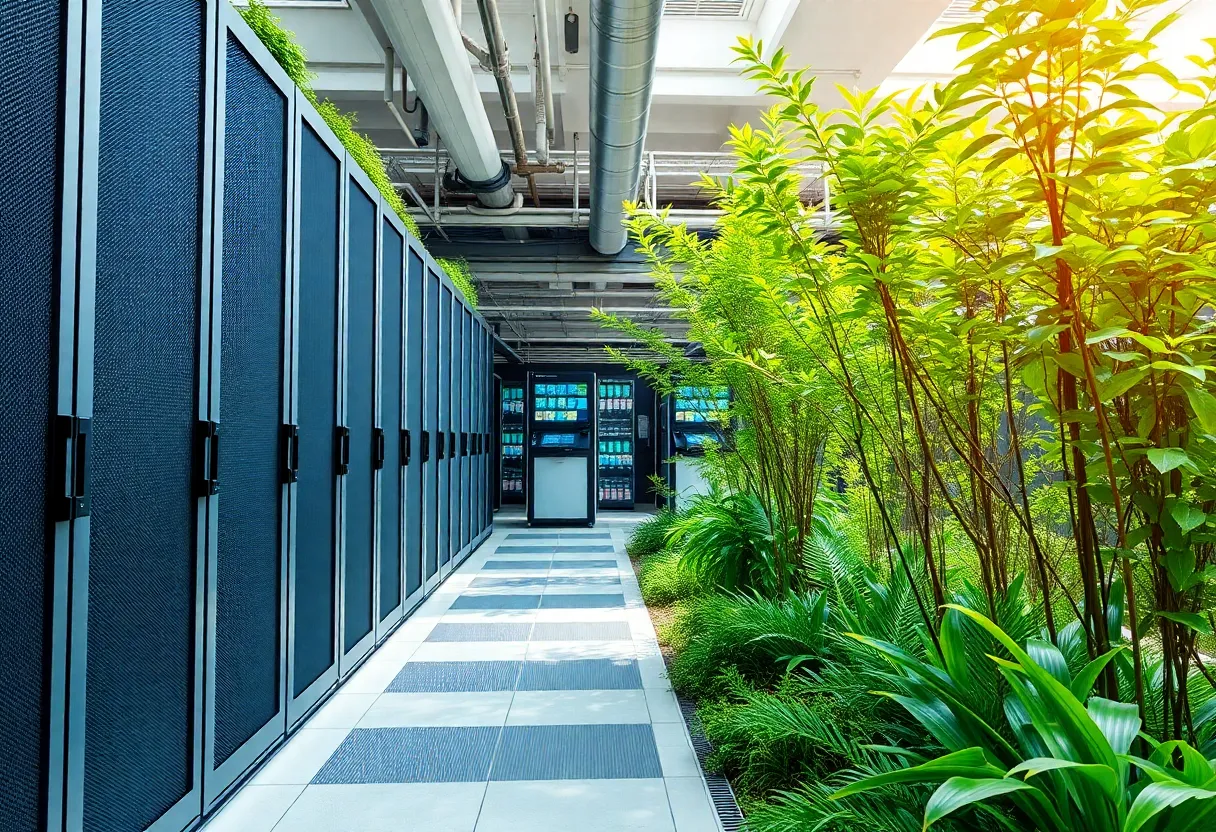News Summary
The Georgia Department of Community Affairs has introduced new regulations to address environmental concerns related to data centers. Following a pause in evaluations, the proposed rules will require developers to disclose energy and water consumption details. These regulations categorize data centers based on size and location and aim to improve scrutiny over their impact on local resources. As demand for data centers continues to rise, the implications for electricity and water supplies are becoming critical. Public hearings are scheduled for feedback on these proposed changes.
Atlanta
The Georgia Department of Community Affairs (DCA) has proposed new regulations aimed at reviewing data center projects more stringently, following a pause in state evaluations of Development of Regional Impact (DRI) proposals for data centers that began in July. The move addresses pressing environmental concerns that have arisen as the demand for data centers has surged, leading to significant impacts on local energy and water supplies.
Environmental advocates have raised alarms over the approval processes that currently lack adequate scrutiny, potentially allowing data centers to proliferate without sufficient evaluation of their energy and water consumption. DCA Commissioner Christopher Nunn highlighted the increasing number of developments that could have adverse environmental effects, which are not comprehensively accounted for in the existing DRI framework.
Under the proposed rules, developers will be required to disclose detailed information about the energy and water consumption of each data center project. Furthermore, data centers would be categorized based on their size and location. Those over 300,000 square feet located in urban or suburban areas would be classified separately from rural centers exceeding 500,000 square feet. Additionally, a new DRI category termed “technological facility” would encompass both data centers and solar power generating facilities, reflecting the growing interconnection between technology and renewable energy resources.
The public will have an opportunity to voice their opinions on these proposed rules during a hearing scheduled for September 9 in Atlanta. Comments will be accepted until September 12, and a vote by the DCA board is planned for November 20 in Savannah.
Rising Electricity Prices and Demand
Georgia residents have experienced a rise in electricity costs, with average residential rates increasing from 14.93 cents to 15 cents per kilowatt-hour between May 2024 and May 2025. Customers utilizing over 1,000 kilowatt-hours per month have seen their bills increase by about $43 since late 2022. Despite these rising costs, Georgia Power asserts that the growth of data centers has helped them maintain base rates at current levels until at least 2028.
Georgia Power anticipates adding 9,000 megawatts of new capacity by 2031 to meet the growing demands of data centers, which consume approximately 10 to 50 times more energy than typical office buildings of comparable size. With an expectation of peak demand growing by 8,200 megawatts in the coming years, there are serious concerns regarding whether the current electricity grids can handle the additional load posed by these facilities.
Water Resource Concerns
In addition to energy worries, there is increasing scrutiny over the substantial water requirements for data centers. For instance, a proposed campus in Coweta County is projected to use around 9 million gallons of water per day. This level of consumption has prompted initiatives like the Atlanta Regional Commission, which is developing a comprehensive water plan to address the rising challenges associated with data center water usage.
State legislation has been introduced to prevent data centers from passing infrastructure costs onto residential customers; however, this proposal has met with resistance from Georgia Power and industry representatives. Growing skepticism exists regarding whether these facilities will adequately fund the associated costs connected to their energy utilization and infrastructure demands.
Potential Solutions and Future Directions
To counteract the environmental impact linked with excessive water usage, closed-loop cooling systems, which recycle water, have been suggested as a viable solution for data centers. As Georgia evolves its policies and frameworks around data center development, the dialogue surrounding these facilities’ energy and water consumption and their broader implications for local communities remains vital.
Deeper Dive: News & Info About This Topic
- Valdosta Daily Times: New Rules for Data Centers
- Wikipedia: Data Center
- GovTech: Atlanta Area Data Center Market
- Encyclopedia Britannica: Data Center
- AJC: Data Centers and Energy Needs
- Google Search: Data Centers Georgia Electricity Costs

Author: STAFF HERE AUGUSTA WRITER
The AUGUSTA STAFF WRITER represents the experienced team at HEREAugusta.com, your go-to source for actionable local news and information in Augusta, Richmond County, and beyond. Specializing in "news you can use," we cover essential topics like product reviews for personal and business needs, local business directories, politics, real estate trends, neighborhood insights, and state news affecting the area—with deep expertise drawn from years of dedicated reporting and strong community input, including local press releases and business updates. We deliver top reporting on high-value events such as Arts in the Heart Festival, Westobou Festival, and Masters Week. Our coverage extends to key organizations like the Augusta Metro Chamber of Commerce and Greater Augusta Arts Council, plus leading businesses in manufacturing and healthcare that power the local economy such as Textron Specialized Vehicles, Cardinal Health, and Nutrien. As part of the broader HERE network, including HEREAtlanta.com and HERESavannah.com, we provide comprehensive, credible insights into Georgia's dynamic landscape.


